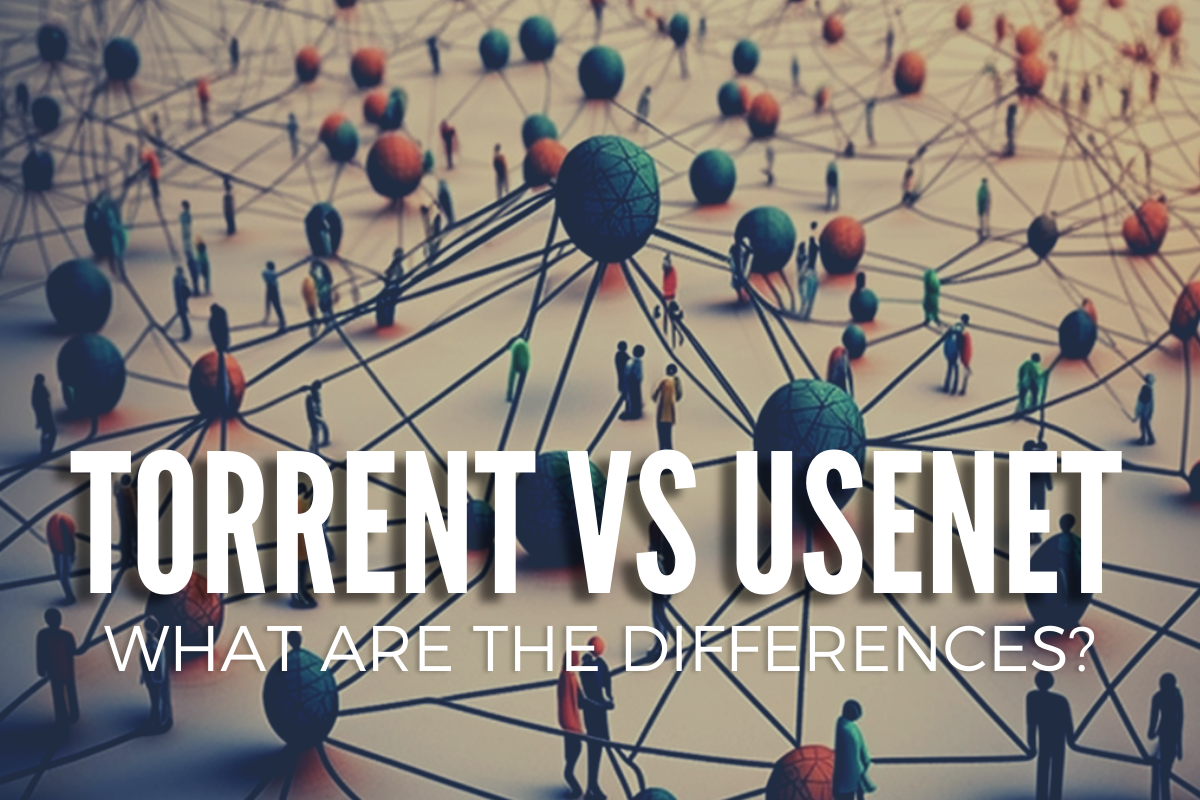Torrent vs Usenet. What are their differences?
In today’s digital world, there are numerous ways to download and share files online, but two of the most popular methods are torrents and Usenet. While both have their pros and cons, it’s important to understand the differences between them to determine which one is best for your needs.
In this blog post, we will compare and contrast the two platforms, discussing their content, distribution, speed, security, cost, and legal issues, so you can make an informed decision. Whether you’re a seasoned downloader or new to the scene, this post will give you an in-depth understanding of the differences between torrents and Usenet and help you determine which one is right for you.
What is Torrent/BitTorrent?
BitTorrent is a protocol for distributing files over the internet. It was created by Bram Cohen in 2001 and is commonly used for sharing large files such as movies, music, and software.
BitTorrent has become a popular method of sharing and downloading large files due to its efficiency and speed, but it has also faced legal challenges due to its association with piracy and the illegal downloading of copyrighted material. However, there are many legitimate uses of BitTorrent, such as distributing open-source software and sharing large data sets.
How does BitTorrent work?
The BitTorrent protocol works by breaking a file down into smaller pieces, which are then shared among multiple users who have the same file. This allows for a more efficient distribution of the file, as users can download pieces from multiple sources at the same time.
When a user starts downloading a torrent file using BitTorrent, they connect to a tracker, which is a server that keeps track of which pieces of the file have been downloaded and from where. The user then downloads pieces of the file from other users who already have them. As the user receives pieces of the file, they can also start uploading those pieces to other users, making the distribution more efficient.
What is Usenet?
Usenet is a globally distributed discussion system. It allows users to share and exchange information and messages in a variety of different discussion groups, known as “newsgroups.” Usenet is organized into a hierarchy of categories, each with its own set of newsgroups, which cover a wide range of topics, from technology and science to hobbies and politics.
Usenet is one of the oldest forms of online communication and predates the World Wide Web. It was created in 1979. Usenet was originally designed to facilitate the exchange of text-based messages and files, but over time it has evolved to include binary files such as images and videos. Usenet is also known for its strong privacy and security features, as all data transfers between users and servers are encrypted and users’ IP addresses are typically hidden.
How does Usenet work?
Usenet operates on a decentralized server network, which means that multiple servers around the world hold copies of the messages and articles that have been posted to the system. Users can access these messages and articles through a Usenet client, which downloads the information from one of the servers and displays it in a format similar to an internet forum.
Torrent vs Usenet: What are their differences?
Torrent and Usenet are both methods of downloading and sharing digital files over the internet.
Both technologies can be used to download a wide variety of digital content, including movies, TV shows, music, software, and games. In addition, both technologies can be used anonymously, although it may be easier to remain anonymous when using Usenet because it is a centralized network with paid access, whereas Torrents are decentralized and typically free to use. Use a seedbox or VPN to stay safe and anonymous while downloading from torrents or Usenet.
But despite their similarities, there is some key torrent vs Usent differences that you should know.
These differences include:
- Content: Torrents are mainly used for sharing and downloading large files such as movies, music, and software. Usenet, on the other hand, is used for a wider range of content, including text and binary files.
- Distribution: In a torrent network, files are broken down into smaller pieces and distributed among users who then share these pieces with each other. In Usenet, files are stored on central servers and can be accessed by multiple users at the same time.
- Speed: Usenet can be faster than torrents because it utilizes a centralized server network instead of relying on the upload speed of individual users.
- Security: Usenet provides a higher level of privacy and security than torrents because all data transfers are encrypted and users’ IP addresses are hidden.
- Cost: Access to Usenet typically requires a paid subscription, while torrents can be used for free. However, paid torrent services often provide faster speeds and a more stable connection.
- Legal issues: Downloading copyrighted material through torrents is illegal in most countries, and many torrent sites have been shut down due to copyright infringement. Usenet is less frequently targeted by legal action, but it is still possible to download copyrighted material through the service.
Final Words
In conclusion, both torrents and Usenet have their advantages and disadvantages when it comes to downloading and sharing digital files online. Torrents are mainly used for large files and offer free access but can be slow and less secure. Usenet, on the other hand, is used for a wider range of content, is faster, and more secure, but requires a paid subscription.
It is up to the individual to weigh the pros and cons of each platform and determine which one is the best fit for their needs. Regardless of the platform chosen, it is important to be aware of the legal issues surrounding file sharing and to only download content that is legally obtained.
















